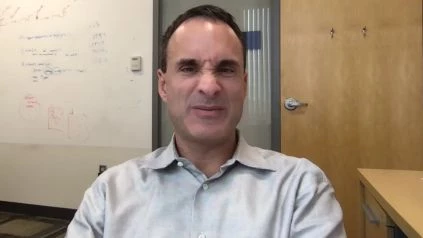Bradley E. Bernstein, MD @BradEBernstein @willflavahan of @MassGeneralNews answers commonly asked questions on the cause of drug resistance found in a form of intestinal tumor.
__________
Most cases of gastrointestinal stromal tumor (GIST), a form of soft tissue cancer (sarcoma), are caused by gene mutations that can be treated effectively with drugs that inhibit the action of enzymes which promote rogue cancer.
But an estimated 10% to 20% of GISTs do not have any mutations detectable or targeted. Scientists in a partnership on cancer research in the Boston area have now explained mechanisms that allow the production of these hard-to-treat cancers and have identified approaches in laboratory experiments that could lead to successful new therapies.
The research, a joint effort by scientists at the Massachusetts General Hospital (MGH), the MIT and Harvard Broad Institute, the Dana-Farber Cancer Institute (DFCI) and the Harvard Medical School (HMS) Ludwig Center, is published in Nature journal.
Importantly, the investigators show how “epigenetic” changes – changes in how the code of genes is read by tumor cells that are not caused by genetic mutations – can lead to the development of GISTs and other cancers, and how it may be possible to short-circuit the cancer-causing machinery.
“Your genome consists of about 6 feet of DNA wrapped very carefully to fit into microscopic cells. One of the tricks that the cell uses to compact all of this DNA is to tie it up into little loops,” says senior co-author Bradley E. Bernstein, MD, PhD, of MGH, Broad Institute and the Ludwig Center at Harvard.
He prefers the method of shoelaces, where a knot separates every carefully tied chain. In scientific terms, the “knot” in the cells is called an “insulator.” He and his colleagues found that one of these insulators usually prevents a gene that causes cancer, FGF4, from coming into contact with a stretch of DNA with a powerful switch that turns on an unrelated gene. The cancer-causing gene and the shift are in different loops in normal cells and never come into contact with each other. The insulator is not active in some types of GIST, however, the loops combine into one, and the on-switch activates the cancer-causing FGF4 gene incorrectly.
Read here:Â https://www.oncologytube.com/video/cause-of-drug-resistance-found-in-a-form-of-intestinal-tumor

